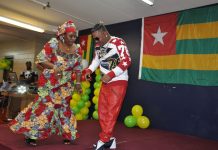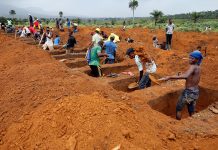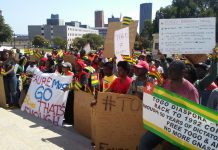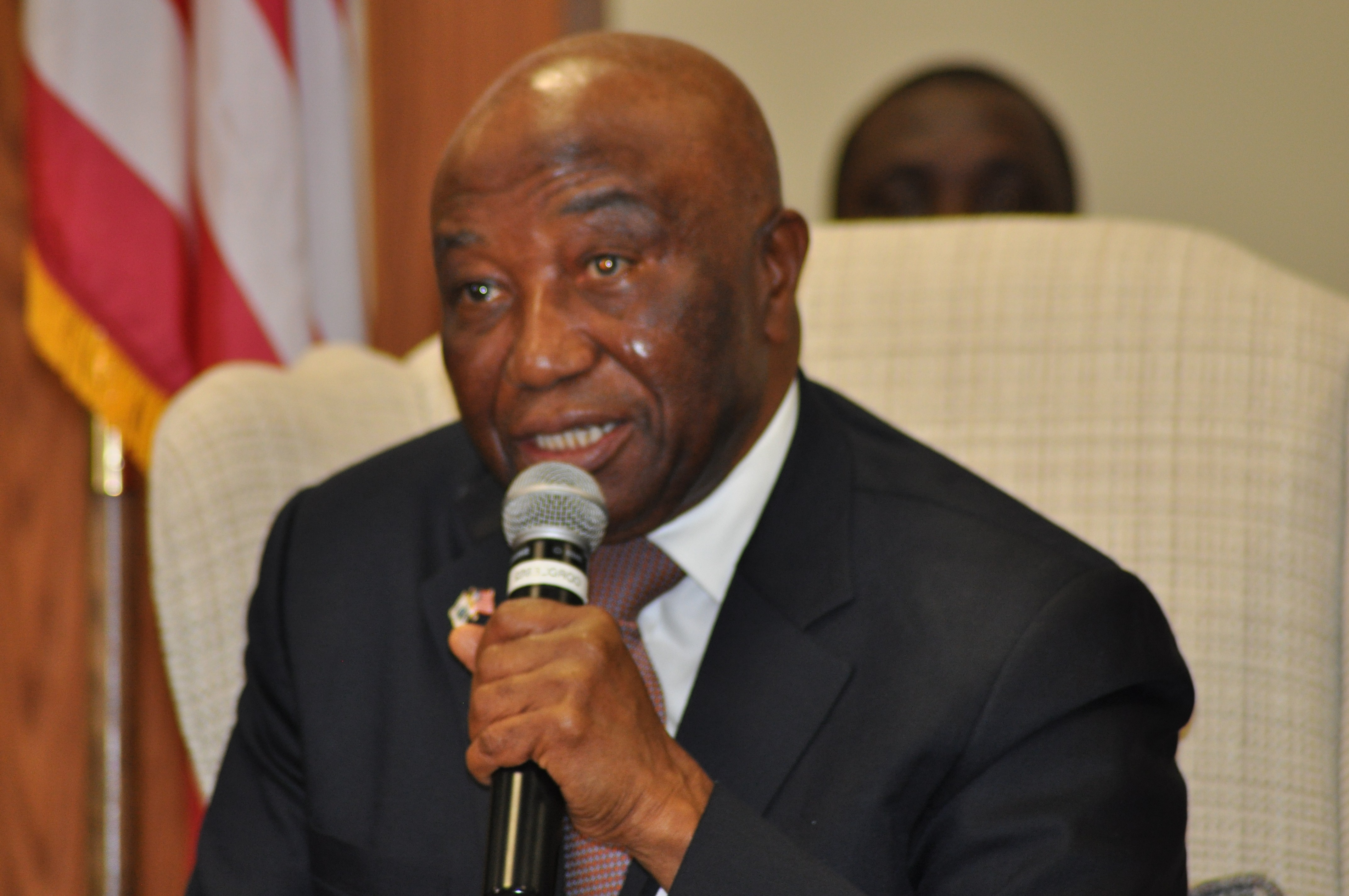
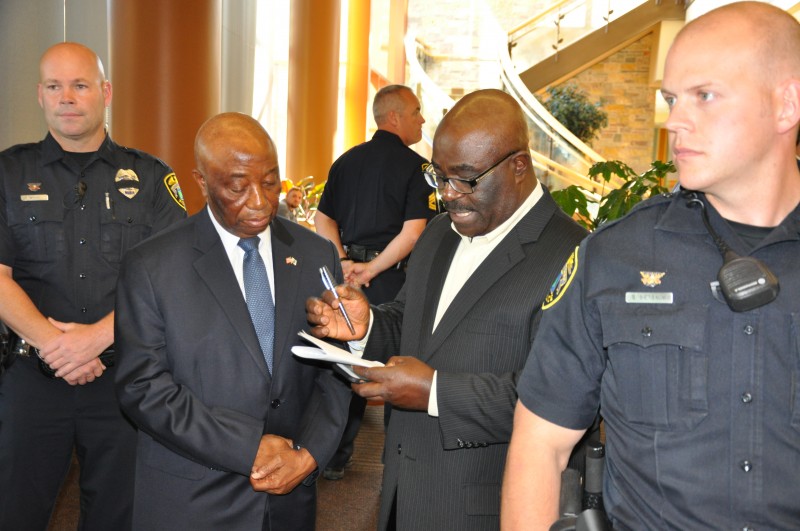
By Issa A. Mansaray | The AfricaPaper
Brooklyn Center, Minn – Liberia still has problems, and its government is looking for solutions and international help on how to solve the country’s chronic healthcare shortage and needed government services, such as better education, shelters for the homeless and improved road conditions.
Visit
Vice President Joseph N. Boakai’s visit to Minnesota, from October 21-26, included meetings with State officials and the Liberian communities in Brooklyn Park and Brooklyn Center. In an interview with the MSR, Boakai said he came to the Twin Cities to seek help for Liberia and to extended his government’s appreciation to all those who helped during the country’s recent Ebola crisis.
Some waited almost two hours for the vice president to start the town hall meeting scheduled from 6-9 pm on Friday, October 23. When he finally arrived, he was welcomed by Mamadee Sesay, executive director of the Organization of Liberians in Minnesota (OLM), on behalf of the 30,000 Liberians in the state.
Interact
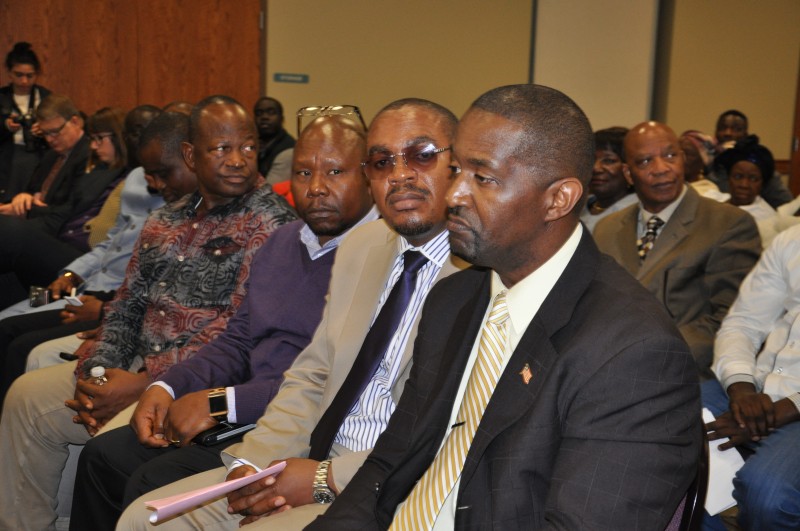
Liberians in Minnesota continue to interact with elected officials from their country, “regardless whether they agree or disagree with them. It keeps our heart [connected] to our country,” Sesay noted, recognizing the OLM board members present and the Liberian leaders representing their various counties in the Twin Cities.
“We have come tonight to interact with our vice president,” Sesay continued, stating that the government “wants to extend its appreciation to those who played a part in helping, and stood by Liberia during the Ebola crisis. He has come to tell you that Liberia is now Ebola free. Also to encourage investors.”
Also in attendance at the town hall meeting was Liberia’s ambassador to the United States Hon. Jeremiah Solunteh, Liberia’s acting consul general in Minnesota Hon. Jackson George, and executives of the Organization of Liberians in Minnesota.
Tell
“It is not all that you read in the media [about Liberia]… We are here to tell you what is back home,” Boakai told his compatriots when he was handed the microphone. “We are happy…to say we are here. Sometimes it is difficult to say thank you,” reminding the audience about other African governments that simply forget to show appreciation to those who helped them in times of national crisis.
Donor
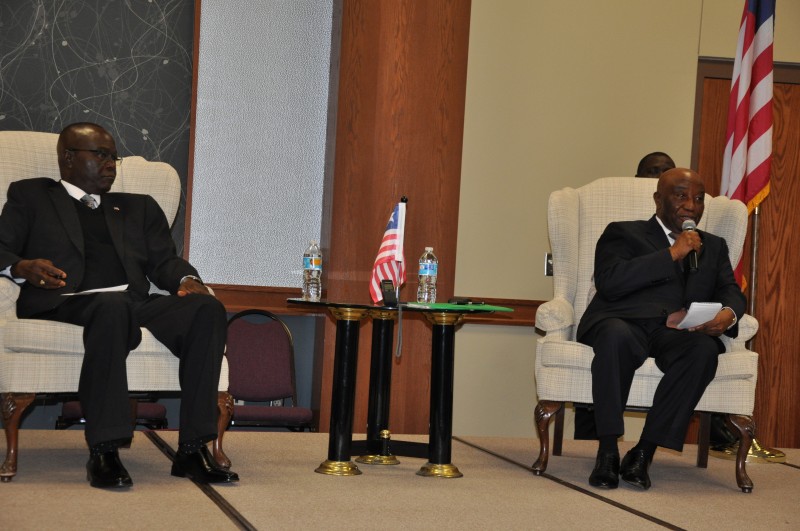
Boakai noted that the Liberian community in Minnesota is the largest audience he has seen compared to the other states, such as Texas and Georgia, that he visited prior to spending the week in Minnesota. He then talked about his visit to North Memorial Hospital, which donated an ambulance to the Liberian government on Tuesday.
“It was good that we were there,” Boakai emphasized. Liberia, was enmeshed in the Ebola crisis and the country was caught off guard, unprepared and lacking emergency vehicles such as ambulances.
Press
Like many African countries, the vice president told those at the town hall meeting, in Liberia “there is freedom of the press. You can disagree with the government, there is no offense.” However, “Youth unemployment is still a major challenge,” Boakai said.
Protest
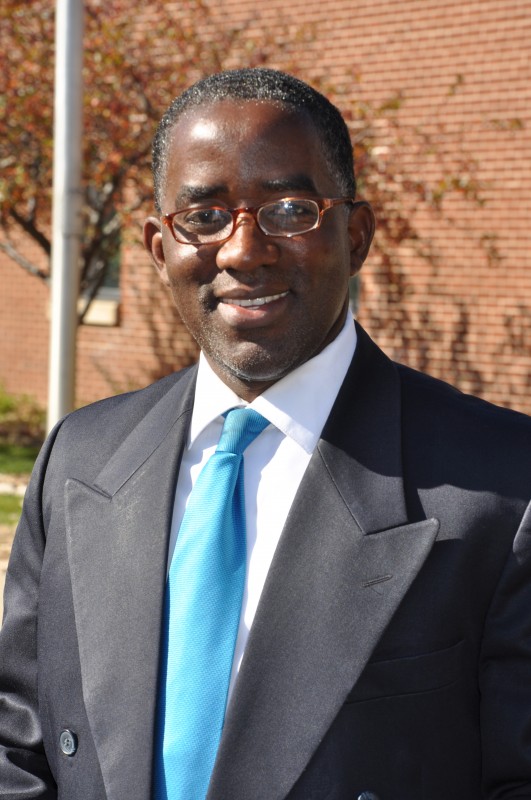
Some Liberians disagree with their vice president, pointing out that after 11 years in power, the government has wasted or mismanaged millions of donor funds marked for development projects in the war-torn and Ebola- ravaged country. “For 11 years, the Ellen-Boakai failed leadership has rendered Liberia the most corrupt country in the world, despite billions of dollars to the Ellen-Boakai government,” said Seyon Nyanwleh, secretary general of the Movement of Liberians Against Corruption (MOLAC) in the U.S.
There is “nothing to show [for all those funds] except, ‘We are trying. We are getting there.’ Is this the vision or exploitation?” asked Nyanwleh, who also represented Concerned Liberians Against Corruption and Impunity. Both groups staged a protest on Sunday.
Setbacks
When the crisis came, the government couldn’t help itself or the people. Ebola created major setbacks from Lofa County in the north of the country to the capital, Monrovia. The government had no system to make money during that period, Boakai noted. Everybody was in a panic in the country during the Ebola breakout.
“Many Liberians started to respond when they saw the seriousness of the outbreak,” said Boakai. People refused to go to the emergency treatment units, and hospitals were sending people away. The international agencies started working with the communities to eradicate Ebola, but the damage was already done to Liberia’s economy and business sector.
Control
“At the end of the day, Ebola was put under control,” said Boakai, adding that “Ebola made a mistake by attacking Liberia… For the first time Liberia introduced cremation… Today Liberia is Ebola free, but thanks to you for stepping in there. Neighboring countries are still not out of the woods yet.”
The medical situation is improving in the country with vaccines for Ebola, but in Guinea and Sierra Leone there are still pockets of outbreaks. Both countries are using Liberia as a research station, with Liberian professionals helping to stop another outbreak despite the improved situation.
Thanks
“As we go around thanking people, asking for help, we thank all our international partners, with many expressing goodwill,” said Boakai. “You are doing very well.”
Liberia now has many mobile phone companies, and more phones are now circulated in the country. The vice president mentioned that some Liberians don’t even know when to call in reference to the time difference between the U.S. and West Africa.
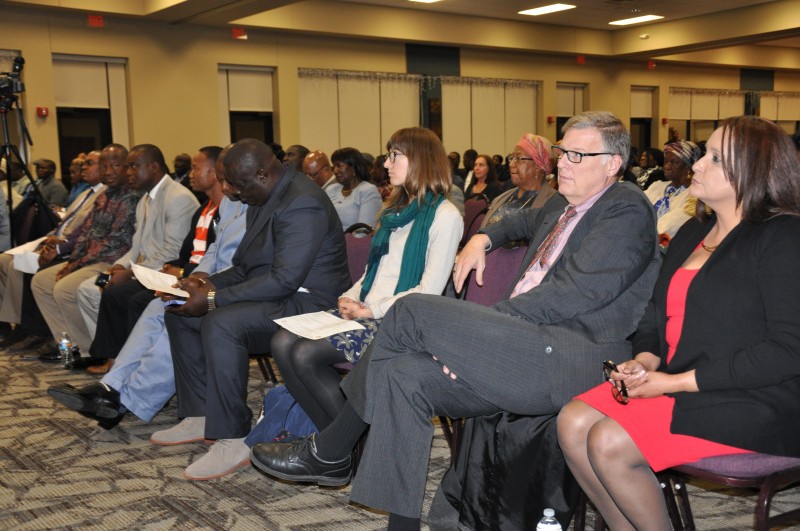
He also extended his appreciation to the mayors of Brooklyn Center and Brooklyn Park for donating fire trucks.
“I want to thank you because of your cooperation. We [the Liberian government] want to thank them for the people they are.” Boakai noted the close ties with the U. S., informing the audience that he will join the Liberian Minister of Finance in Washington, D.C. to sign a $2 million aid contract with the U.S. government to develop Liberia after its health crisis.
Call
The Minneapolis-based American Refugee Committee (ARC) received awards on Friday evening from Vice President Boakai. To help Liberia, ARC was also on the ground in Liberia and helped about 68,000 people during the crisis.
“When the call came, we answered,” said Chris Smoot, ARC’s vice president for International Programs, of the organization’s role in Liberia.
The OLM and the newly formed Liberia consulate in Minnesota also gave eight awards through the vice president to individuals for their works in helping Liberia.



































